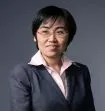Earlier this year, China surpassed Japan to become the world's biggest exporter of cars. Reports show that China exported 1.07 million vehicles in the first three months of 2023, up 58% compared to the same period in 2022, whereas Japan's vehicle exports stood at 954,185, having only increased 6% from first quarter 2022.
Following these reports, on November 8, 2023, Chairman of the House Select Committee on the Strategic Competition Between the United States and the Chinese Communist Party (CCP) (“the Select Committee”), Mike Gallagher (R-WI), and Ranking Member, Raja Krishnamoorthi (D-IL), sent a letter to US Trade Representative Ambassador Katherine Tai with concerns about the CCP's potential plan to flood the US market with automobiles, particularly electric vehicles.
The letter highlights as a threat the Chinese automakers' ability to leverage an “unlevel playing field in their home market,” which in turn allows these automakers to expand into global markets. Specifically, the letter alleges that China “has given its homegrown automakers an unfair competitive advantage” through the provision of “discriminatory government subsidies and preferential market access policies[.]” The lawmakers claim that, meanwhile, China has also pressured “foreign automotive firms to localize and transfer their core technologies” to Chinese companies. The letter claims electric vehicle exports from China have increased by 851% in the last three years. While most of those exports were to Europe, the lawmakers express concern that the Chinese auto manufacturing market could turn its focus to the United States. The letter demands “urgent action” to counter the perceived unfair practices of China and “ensure that US automakers and auto workers” have a level playing field on which to compete.
The letter further alleges China used its “state-led economic model” to control nearly 76% of the global battery cell production capacity, which allows Chinese electric vehicle manufacturers to build these vehicles at lower prices. The letter also claims that Chinese auto makers have been able to operate at a loss, with one firm receiving at least $2.6 billion from the Chinese government, thus offsetting its $835 million loss in one quarter alone.
The letter argues that the US has yet to see an influx of Chinese electric vehicles because these vehicles do not qualify for tax credits under the Inflation Reduction Act, and because of the additional 25% tariff on vehicles imported from China. The two lawmakers emphasize that the additional 25% tariff must remain in place in order to protect the US industry. That said, the letter cautions that, with continued government financial backing, Chinese automakers may be able to absorb the cost of the 25% tariff, and thus begin to flood the US market. For that reason, the lawmakers request that the Office of the United States Trade Representative (USTR) consider increasing the tariffs, and even launching a new Section 301 investigation into China's alleged subsidies, localization, government financing, and other policies that have led to the significant increase in Chinese vehicle exports. The letter also noted that China may attempt to circumvent the tariffs through methods like transshipment and overseas production in third countries. The Select Committee asked for a USTR response as to whether the current rules of origin within US trade agreements need to be strengthened and what other US policy tools are needed to address China's access to the US market.
What action the USTR would take in response to the Select Committee letter, if any, remains unknown. Meanwhile, this development demonstrates that new energy, including the electric vehicle industry, continues to be an area of contention in the bilateral economic relationship.
Footnotes
1. https://www.bbc.com/news/business-65643064 (May 18, 2023).
2. Id.
3. https://selectcommitteeontheccp.house.gov/media/press-releases/gallagher-krishnamoorthi-issue-warning-surge-prc-automobile-exports-and-ccps (Nov. 11, 2023).
4. https://selectcommitteeontheccp.house.gov/sites/evo-subsites/selectcommitteeontheccp.house.gov/files/evo-media-document/11.7.2023-letter-to-ambassador-tai-auto-301.pdf (Nov. 7, 2023).
5. Id.
6. Id.
7. Id.
8. Id.
9. Id.
Visit us at mayerbrown.com
Mayer Brown is a global services provider comprising associated legal practices that are separate entities, including Mayer Brown LLP (Illinois, USA), Mayer Brown International LLP (England & Wales), Mayer Brown (a Hong Kong partnership) and Tauil & Chequer Advogados (a Brazilian law partnership) and non-legal service providers, which provide consultancy services (collectively, the "Mayer Brown Practices"). The Mayer Brown Practices are established in various jurisdictions and may be a legal person or a partnership. PK Wong & Nair LLC ("PKWN") is the constituent Singapore law practice of our licensed joint law venture in Singapore, Mayer Brown PK Wong & Nair Pte. Ltd. Details of the individual Mayer Brown Practices and PKWN can be found in the Legal Notices section of our website. "Mayer Brown" and the Mayer Brown logo are the trademarks of Mayer Brown.
© Copyright 2023. The Mayer Brown Practices. All rights reserved.
This Mayer Brown article provides information and comments on legal issues and developments of interest. The foregoing is not a comprehensive treatment of the subject matter covered and is not intended to provide legal advice. Readers should seek specific legal advice before taking any action with respect to the matters discussed herein.


